- Home
- Robert Goddard
Out of the Sun Page 2
Out of the Sun Read online
Page 2
And then there was the telephone call he always came back to. Who could have made it but Iris? She alone would know for certain. It had to be her. If so, the call was a kind of summons. A plea for help, perhaps. An appeal for support. She must have gone to some lengths to track him down. In the circumstances, he could hardly ignore her. But why, if it was her, had she left no name or number? Why the anonymity she must have known he would see through? There was, of course, only one way to find out.
Harry called Shafiq from the pub pay phone and asked if he would be prepared to swap shifts with him tomorrow. Pressed for an explanation, he admitted it had something to do with hospital visiting hours, then claimed he was running out of money and rang off before Shafiq could do more than agree.
Since the swap committed Harry to a disagreeably early start, he headed straight home, hoping to find Mrs. Tandy had already gone to bed. But no such luck. She was up and about, making cocoa for herself and chopping up sardines to tempt Neptune, her cat, down from a neighbouring rooftop. Though cocoa was not what Harry wanted on top of four pints, no dinner and the sudden discovery of a son, it was what he found himself consuming in the tiny kitchen, while Mrs. Tandy stood at the open back door,
whistling for Neptune and waving the bowl of sardines in the night air to set his whiskers twitching.
“I don’t know why I bother with this cat,” she announced. “He gets better treatment than most of the children round here.”
Harry choked on his cocoa and wondered amidst his splutters how Mrs. Tandy had developed her uncanny knack for making remarks somehow related to whatever he was trying hardest to keep to himself.
“Of course, Selwyn and I were never blessed with offspring. Perhaps if we had been … But, then, you can’t be sure, can you?”
“What about, Mrs. T?”
“How they’d have turned out. What they’d have become. As often a curse as a comfort, I believe.”
“Well, I wouldn’t know, would I?”
“No.” She glanced back at him with a disconcerting beadiness about her eye. “I suppose you wouldn’t.”
THREE
Tuesday was Mrs. Tandy’s Scrabble day. This was a relief to Harry, since it meant the coast was clear for him to return unobserved from Mitre Bridge for a bath, shave and change of clothes before setting off for the hospital. Such midday sprucing-up would have struck Mrs. Tandy as highly suspicious. As would the abstention from alcohol that nibbled at Harry’s nerves as he made the journey to Bloomsbury. Not to mention the half dozen circuits of Russell Square he completed while making substantial inroads into a pack of Karelia Sertika cigarettes. He made a mental note to call at Theophilus’s shop off the Charing Cross Road later and collect a fresh supply of the esoteric Greek brand his years on Rhodes had left him with a liking for. Though whether such a banal errand would lodge in his mind in view of all else it might soon have to cope with he rather doubted.
It was nearly three o’clock when he reached the hospital. The third-floor nursing station was staffed this time, but, happily, not by any of the nurses he had met yesterday.
“Is it OK to visit David Yenning?”
“Well … he already has a visitor, actually.”
“His mother?”
“Yes.”
“Don’t worry. We know each other.”
He pressed on down the corridor. The door of room E318 stood half open, a pool of golden sunlight spilling across the threshold.
He stopped just short of it as a voice caught his ear. Iris Venning’s. She was reading aloud.
“Cosmologists seem to have taken a Trappist vow in response to such inconvenient data. How can the universe contain stars up to sixteen billion years old when the Hubble telescope measures the age of the entire universe at a mere eight billion? Clearly, there is no easy answer. But scientists are not in business to dodge difficult questions.”
Her voice had not changed. Listening to it, he could almost imagine that if he stepped into the room he would see her as he had last seen her: red-headed, bright-eyed and full-figured, her sensuous lips shaping a come-hither smile or a suggestive giggle. But the photograph had prepared him for what he would actually see. A middle-aged woman with salt-and-pepper hair cut sensibly short, her face grown lined and cautious, her eyes dull and diffident, her smile… But she was not going to smile, was she? For there was nothing to smile about.
“How they square this circle may determine the future of astrophysics. The Big Bang may come to be seen as the Big Blunder. A role for the much-derided cosmological constant may suddenly emerge. But that will seem to some awfully like a last resort. What is really needed ‘
She stopped the instant he appeared in the doorway. They looked at each other across twelve feet and a gulf of years. Recognition wrestled with disbelief in her gaze. Her mouth fell open in surprise. She slowly removed her glasses, put down the magazine she had been reading from and stared at him, unable to convince herself, it seemed, that it really was him. Had he changed so very much? Or had she thought he would ignore her message?
“I’m sorry,” she said, ‘who…” She frowned and rose from her chair, stepping round the end of the bed to see him more clearly. “Do I know you?”
“It’s me,” he replied, wishing to God he had thought of something less inane by way of introduction.
“Harry?” Her eyes narrowed. She took another step closer. “It can’t be.”
He shrugged and shaped an apologetic grin. “I guess this is what letting yourself go means.”
She said nothing, blinking rapidly as she stared at him. She reached out behind her and clasped the bed-rail, as if for support.
“How are you, Iris?”
“What… What are you doing here?”
“I got your message.”
“What message?”
“About David. About… our son.”
Much of the colour drained from her face. A ring on one of her fingers began to tinkle against the hollow metal of the bed-rail. She was trembling, as if fear were slowly replacing shock.
“I called round yesterday. They wouldn’t tell me very much.”
“It was you?”
“Ah. They mentioned my visit, did they? Surely you must have guessed it was me, then.”
“Guessed’? Guessed it was you? Of course not. I’d never ‘
“Look, why don’t we sit down?”
He moved hesitantly into the room. As he did so, Iris suddenly darted to his left and slammed the door shut behind him. Closer to, he could hear the shortness of her breath and sense the turmoil of her thoughts. But he could not fathom it. Her reaction made no sense. “Let me get this straight,” she said slowly. “You claim to have got some kind of message… about David?”
“You phoned the garage yesterday. Where I work. Just before I arrived.”
“And said what?”
“That my… son… was here.”
“Your sonT
“David.”
“He’s no son of yours.” But something in her flickering glance towards the bed was as false as it was evasive.
“Come on, Iris. May sixty-one. I can do the sums.”
“You’ve done them wrong.”
“What are you saying?”
“I’m saying David isn’t your son. I’m saying I made no phone call. And I’m saying I’d like you to leave.”
“What?”
“My son is gravely ill. And I’m extremely worried about him. The last thing I need the very last is somebody I hardly know popping up from the remote past to claim a relationship that exists only in his imagination.”
“Iris, for God’s sake…” She must have read the bafflement in his eyes. Just as he read the determination in hers. The message had not come from her. The central fact of it was true. David was his son. But Iris had no intention of admitting anything. To her, Harry was worse than an enemy and less than a stranger. He was some kind of rival. One she was certain she had the power to defeat.
“Are you going
to leave?”
“Not just like ‘
She pulled the door open and stepped into the corridor. “I want to see Staff Nurse Kelly immediately,” she called towards the desk. “It’s urgent.”
“There’s surely no need for ‘
“You’re right,” she said, looking straight at him. “No need for you to have done this at all. What gave you the idea, Harry? Did you see one of the newspaper articles about David and reckon there might be some money in it for you?”
“Money?”
“You look as if you’re short. Well, I can’t say I’m surprised. But if you think ‘
This has nothing to do with money.”
“I can’t imagine what else would bring you out of the woodwork.”
“You phoned me.”
“No.”
“Well, somebody did.”
“I don’t think so. In fact Staff Nurse Kelly strode suddenly into view, a bustling vision of blue-starched efficiency. “Thank you for coming so quickly, Rachel,” said Iris. “You met this man yesterday, I think.”
“I did.”
“His name’s Harry Barnett.”
“A friend of yours, he said.”
“No kind of friend. And no help to my son at all. I’ve asked him to leave, but he refuses.”
“I haven’t refused,” put in Harry. “It’s just ‘
“I want him to go. And I don’t want him to come back. Is that clear?”
“It’s clear, Mrs. Hewitt.” Kelly looked flintily at Harry. “We do have security staff, Mr. Barnett. Am I going to have to call them?”
“No. You’re not.”
“This way, then. If you please.”
Harry shaped a final appeal. “Iris, can’t we just…” But no. They could not. That was obvious. With a resigned shrug, he walked past them and away down the corridor at what he judged to be a dignified pace.
FOUR
Beer was a lover who never tired of Harry’s attentions, a friend who never turned him away. The slurred damn-it-all indifference he could summon up under its influence was his for the rest of the day, expanding with each pub he visited on his erratic route home, until, at his last port of call, even the barman’s reluctance to serve him did not dent his sang-froid
“Don’t you think you’ve had enough, mate?”
“Oh, of many things. But not of beer. “Look through the bottom of a pewter pot, to see the world as the world’s not.” Truest thing I ever read.”
“We don’t allow poetry in here.”
“No? Well, looking at the decor, I can see what you mean. Still, a pint should improve the view.”
“All right. Just one, mind.”
“Absolutely. Just one. As God’s my witness.”
It was an oath he regretted breaking next morning, after waking late and leaden-headed to the discovery that even the curtain-filtered light of Foxglove Road, Kensal Green, could be painfully dazzling to those who have just single-handedly boosted several brewers’ prospective dividends to their shareholders.
He stumbled to the kitchenette, coughing over his first cigarette. There he filled the kettle, started it boiling, downed a pint of London tap-water and commenced the quest for the Holy Grail of a clean coffee-mug. Before he had abandoned it, the telephone rang.
“Hello?” he said in a gravelly phantom of his own voice.
“Harry?”
“Yes. Who It was Iris. Disbelievingly, he fell silent. Surely it could not be. But it was.
“Am I … disturbing you?”
“Er…” He leant over and turned off the gas. “No. You’re not. Really.”
“The thing is … well… I’m sorry about what I said yesterday. How I reacted. It was…”
“Understandable.” He gave his forehead a vigorous massage with his free hand. It made nothing any clearer. “Honestly.”
“It was the shock, actually. After all these years. The shock and…”
“There’s no need … to explain.”
“Oh, but I think there is. I think I owe you that much, now you know about David. Could we meet, perhaps?”
“Well, of course. Why not? I mean…”
“You mean that’s what you wanted to do yesterday and I prevented it. You’re quite right. I can only apologize. You’re probably wondering what’s brought about this change of heart.”
“We’ve both had the chance to sleep on it, I suppose.” Though whether the stupor Harry was still recovering from could be called sleep he was not at all sure.
“Quite. Anyway, I suggest somewhere other than the hospital. I sometimes take tea at the Hotel Russell after visiting David. Do you know it?”
“Yes.” Of course he did. It was the terra cotta pile he had passed on his circuits of Russell Square yesterday afternoon. The thought reminded him that he had, as predicted, failed to stock up with Greek cigarettes.
“I’ll meet you in the lounge at four o’clock.”
“Fine.” Such a time would necessitate an early departure from Mitre Bridge. Perhaps he would just go sick instead. He felt ill enough to make it almost genuine. Although, strangely, his condition seemed to have improved since picking up the telephone. “I’ll be there.”
“Right. Well ‘
“One thing, Iris.” His mind was sharpening now, even without the aid of coffee. A suspicion was growing on him that her conciliatory tone might amount to a confession. “If you had this number all along, why did you phone me at the garage on Monday?”
“Because I didn’t phone you, Harry. I called your mother in Swindon this morning. She gave me this number. Oh, don’t worry. I didn’t tell her who I was. But the message you got wasn’t from me. I realized later how stupid what I said about you being on the make must have sounded. Even if you had read about David, you wouldn’t have connected him with me, would you? Or with you.”
“Who did call me, then?”
“I don’t know. Nobody but David and I know, Harry. That’s the point.”
“Know that I’m his father, you mean?”
There was a lengthy silence Harry steeled himself not to break. Then Iris said: “Exactly.”
FIVE
His neck chafing against the unfamiliar constriction of a tie, his eyes scarcely registering the wood-panelled elegance of his surroundings, Harry took the cup of Assam tea Iris had poured for him and leant back in his chair. He felt as he feared he looked: out of place and ill at ease.
Iris Yenning or Hewitt, as he was struggling to think of her -appeared, by contrast, perfectly in tune with the hushed and al coved environment. She was wearing a simple but flattering outfit Mrs. Tandy would probably have called a tea-dress. It certainly confirmed that Iris had kept her figure. Whereas even a double-breasted blazer could not disguise the paunch Harry had acquired since the summer of 1960, a season his thoughts, and doubtless hers, were bound to return to, however careful they might be to avoid mentioning it directly.
Indirectly, the events of that distant summer were the only reason they had met this wintry afternoon. Without them, David John Yenning would never have been born. Nor would he be lying now, comatose and unaware, a few short streets away. Time could devise its revenges from beginnings as well as endings.
“Are you diabetic, Harry?” asked Iris, as he declined the offer of sugar.
“No.”
“I’d thought you might be, you see. I’d thought David might have inherited the disease from you. It developed in his teens. Oh, he came to terms with it readily enough. The injections and the diet. He made no fuss about it. It was just a problem to solve. He’s always been good at that. Solving problems. But this time…”
“How did it happen? The coma, I mean.”
“I don’t know. I don’t understand it. He was alone. In an hotel room out at Heathrow. He was staying there overnight before flying back to America. He’s lived and worked in the States for, what, nine years now. He’s a mathematician, Harry. Quite brilliant, as a matter of fact. But it’s all over my head. What he does. What
he thinks about. Yours too, I expect.”
“A brilliant mathematician?”
“Yes. Amazing, isn’t it? At an age when you were still reading the Beano, he was devouring Newton’s Principia. And making things too. Cardboard do decahedra Hypercubes. God knows what. He really was a prodigy. Senior wrangler at Cambridge. Ph.D. at twenty-three. We were so proud of him.”
“You and Claude?”
“Yes. Claude died the year after David went to California to do post-doctoral research at UCLA. That’s where he met his wife. In Los Angeles.”
“So he’s married. Any ‘
“No. No children. David and Hope are divorced now, anyway. Maybe you’ve heard of her. She’s married again since. To the film star, Steve Brancaster.”
“I don’t think so.”
“It doesn’t matter. David was well rid of her. She’d only have held him back.”
“From what?”
“Academic success. She always wanted him to go into the commercial sector. Got her way in the end with the Globescope job. Globescope’s an international economic forecasting corporation based in Washington. David was working for them until the spring of this year. But I don’t think his heart was really in it. When he came to see us last month, he was full of a new project that was pure research.”
“Us meaning you and your new husband?”
“Yes. Ken was a golfing friend of Claude’s. He was very good to me after Claude’s death. We’ve been married five years now. He runs an engineering company in Stockport.”
“You still live in Manchester, then?”
“Wilmslow, actually. But I’ve been staying with my sister in Chorleywood since this happened. Which brings us back to where we started, doesn’t it? David had been over here drumming up interest in his new project. He’s secured a lot of funding in America already and seemed confident it would get off the ground. A specialist institute to investigate the mathematics of higher dimensions. Don’t ask me what they are. I’ve never understood such stuff. But David was full of it. And very excited about the prospects. He could hardly wait to get it up and running. That’s what makes the suggestion of attempted suicide so utterly She caught his shocked look. “I’m sorry. Perhaps I should have explained more fully from the start. But it’s not easy. Explaining all this to someone I never expected to … Someone who never…”

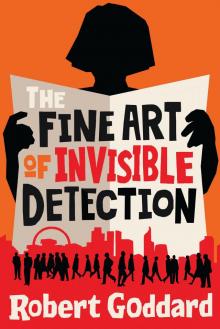 The Fine Art of Invisible Detection
The Fine Art of Invisible Detection One False Move
One False Move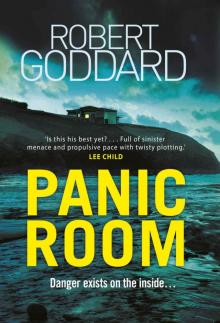 Panic Room
Panic Room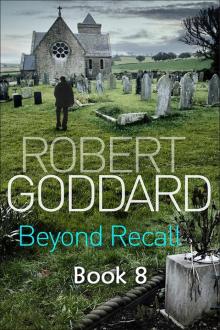 Beyond Recall
Beyond Recall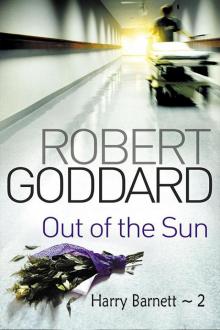 Out of the Sun
Out of the Sun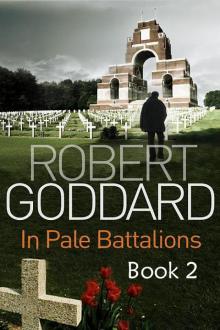 In Pale Battalions - Retail
In Pale Battalions - Retail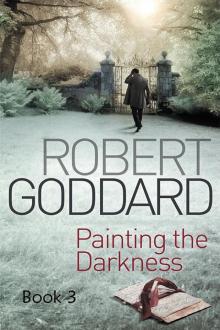 Painting The Darkness - Retail
Painting The Darkness - Retail The Corners of the Globe
The Corners of the Globe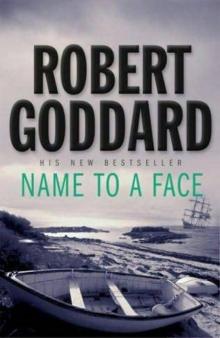 Name To a Face
Name To a Face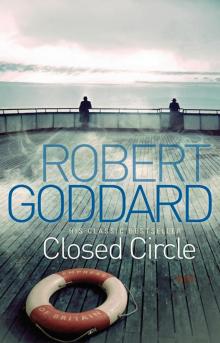 Closed Circle
Closed Circle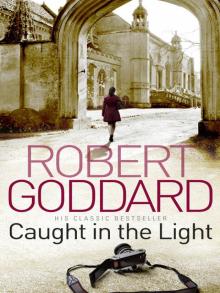 Caught In the Light
Caught In the Light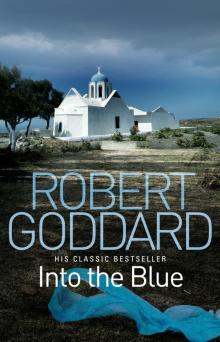 Into the Blue
Into the Blue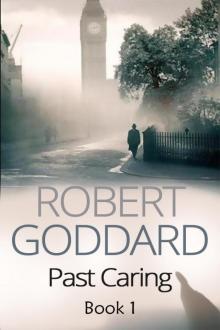 Past Caring - Retail
Past Caring - Retail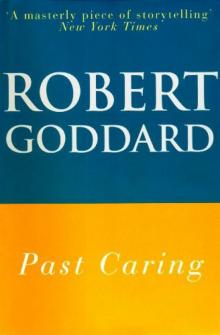 Past Caring
Past Caring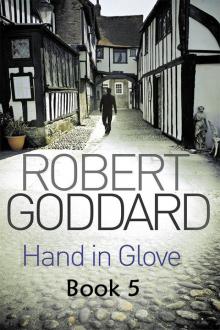 Hand In Glove - Retail
Hand In Glove - Retail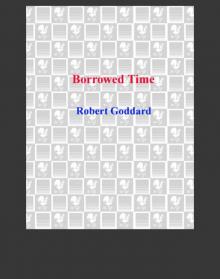 Borrowed Time
Borrowed Time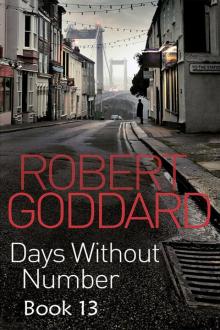 Days Without Number
Days Without Number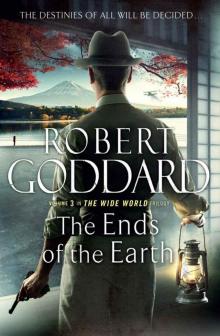 James Maxted 03 The Ends of the Earth
James Maxted 03 The Ends of the Earth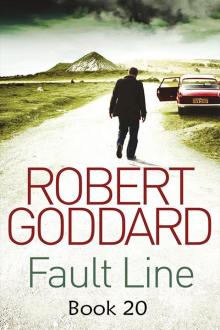 Fault Line - Retail
Fault Line - Retail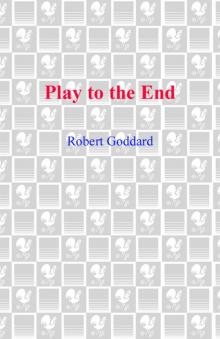 Play to the End
Play to the End Sea Change
Sea Change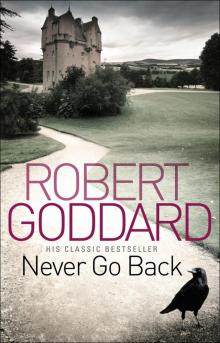 Never Go Back
Never Go Back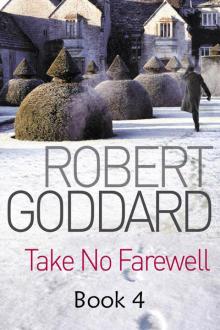 Take No Farewell - Retail
Take No Farewell - Retail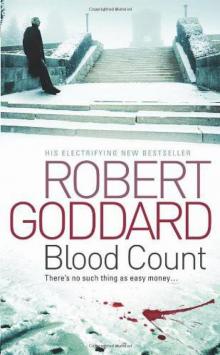 Blood Count
Blood Count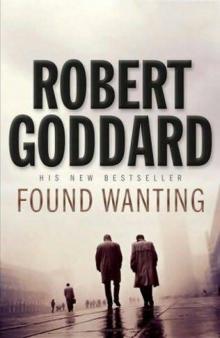 Found Wanting
Found Wanting Sight Unseen
Sight Unseen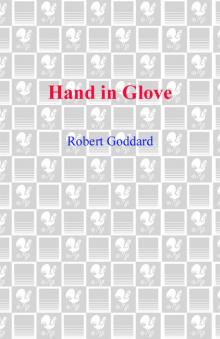 Hand in Glove
Hand in Glove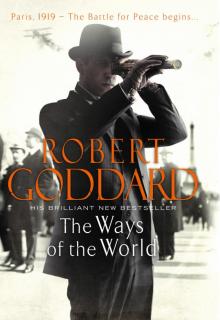 The Ways of the World
The Ways of the World